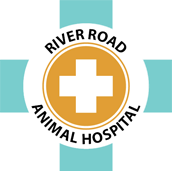Library
-
Iguanas make fairly good pets for the right owner. Since they can live up to 15 years and can grow up to 6 feet, proper housing and space must be considered for long-term care. Proper care, housing and nutrition is essential to help your iguana live a healthy life.
-
Iguanas face several health problems that need veterinary intervention for treatment or resolution, including cystic calculi, Salmonella, avascular necrosis, abscesses, and dystocia. Understanding these problems helps you better care for your pet and minimize future health concerns.
-
Itraconazole is given by mouth in the form of a capsule, tablet, or liquid to treat fungal infections in cats and for off-label treatment in dogs and small mammals. The most common side effects are anorexia, vomiting, liver toxicity, skin lesions, or limb and vessel swelling. It should not be used in pets with liver disease or low stomach acid production, and used with caution in pregnant, lactating, or pets with heart disease.
-
Ketoconazole is an antifungal given by mouth in the form of a tablet, used off label to treat fungal infections in dogs, cats, small mammals, and reptiles. The most common side effects are vomiting, diarrhea, lack of appetite, and weight loss. Do not use in pets that are allergic to it and use extreme caution when using in cats or pregnant pets.
-
Ketoprofen is given by mouth in the form of a capsule or tablet to treat pain and inflammation in dogs and horses. It’s use in animals is off label. Do not use this medication in pets that are allergic to it, or in pets concurrently using corticosteroids or other NSAIDs. If a negative reaction occurs, call your veterinary office.
-
Lactulose is used off label and is given by mouth to treat high blood ammonia levels and constipation in dogs, cats, birds, and reptiles. The most common side effects are diarrhea, bloating, gas, and abdominal cramping. Do not use in pets that are allergic to it or in pets with intestinal blockage/obstruction.
-
Leopard geckos make great pets for children and adults. They do not require elaborate habitats and they have a 10–15-year lifespan with good health care, a clean environment, and proper feeding.
-
A wild reptile typically spends many hours a day basking in the sun and absorbing ultraviolet (UV) light, which is necessary for the manufacture of vitamin D3. Vitamin D3 is manufactured in the skin and is required for the intestines to properly absorb calcium from food. Lack of UV light can predispose a pet reptile to nutritional metabolic bone disease (MBD). Regular exposure to natural direct sunlight outside is encouraged and recommended whenever possible.
-
Marbofloxacin is given by mouth and is used on and off label to treat certain bacterial infections including leishmaniasis, tuberculosis, and hemoplasmosis. Common side effects include vomiting, diarrhea, and lack of appetite.
-
Meloxicam (brand names Metacam, Meloxidyl, Loxicom, OroCAM) is given by mouth in the form of a liquid, capsule, or tablet to treat pain and inflammation in dogs, cats, and other small mammals. Do not use this medication in pets that are allergic to it, or in pets concurrently using corticosteroids or other NSAIDs. If a negative reaction occurs, call your veterinary office.

